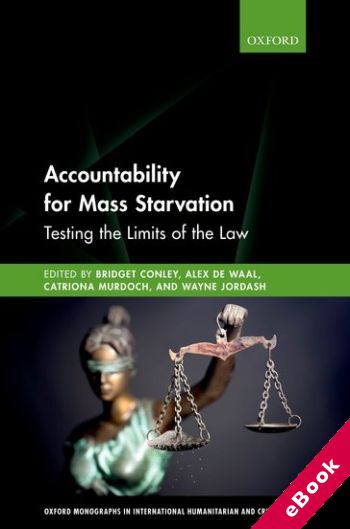
The device(s) you use to access the eBook content must be authorized with an Adobe ID before you download the product otherwise it will fail to register correctly.
For further information see https://www.wildy.com/ebook-formats
Once the order is confirmed an automated e-mail will be sent to you to allow you to download the eBook.
All eBooks are supplied firm sale and cannot be returned. If you believe there is a fault with your eBook then contact us on ebooks@wildy.com and we will help in resolving the issue. This does not affect your statutory rights.
Famine is an age-old scourge that almost disappeared in our lifetime. Between 2000 and 2011 there were no famines and deaths in humanitarian emergencies were much reduced. The humanitarian agenda was ascendant. Then, in 2017, the United Nations identified four situations that threatened famine or breached that threshold in north-eastern Nigeria, Somalia, South Sudan, and Yemen. Today, this list is longer. Each of these famines is the result of military actions and exclusionary, authoritarian politics conducted without regard to the wellbeing or even the survival of people.
Violations of international law including blockading ports, attacks on health facilities, violence against humanitarian workers, and obstruction of relief aid are carried out with renewed impunity. Yet there is an array of legal offenses, ranging from war crimes and crimes against humanity to genocide, available to a prosecutor to hold individuals to account for the deliberate starvation of civilians. However, there has been a dearth of investigations and accountability for those violating international law.
The reasons for this neglect and the gaps between the black-letter law and practice are explored in this timely volume. It provides a comprehensive overview of the key themes and cases required to catalyze a new approach to understanding the law as it relates to starvation. It also illustrates the complications of historical and ongoing situations where starvation is used as a weapon of war, and provides expert analysis on defining starvation, early warning systems, gender and mass starvation, the use of sanctions, journalistic reporting, and memorialization of famine.